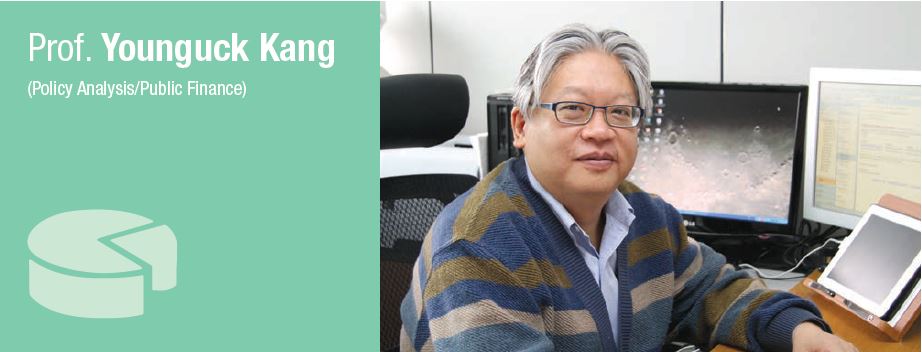
What is policy?
- Date 2013-05-01 00:51
- CategoryResearch and Education
- Hit1557
Policy (päləsē): none of us at KDIS are strangers to this word... Not only are we all pursuing policy degrees, but we have either had a role in formulating, analyzing or been affected by policies in our home country.
But what really is policy? Why is it so important that there are schools dedicated entirely to this subject? For answers, I turned to the professors at KDIS:


Prof. Kang Policy in public domain is our collective attempt to deal with our collective problems, contrary to private domain and problems. We contribute resources (taxes, talents) to find solution to the social problem that cannot be resolved by individual efforts.
Prof. Choi Basically, it is a tool developed by human beings'' collective efforts to address public problems, but it is more than just a tool or a means because policy includes values, philosophies as well as the resource allocation.
This collective problem solving is however, not without its challenges...
Prof. Kang Policy creates winners and losers within a society, and in some cases across different nations. If we are to enhance our collective happiness as members of the society, we need to think very seriously about finding ‘better,’ not ‘right,’ solutions to our collective problems that would justify using collective (public) resources.
Prof. Choi Policy is a means to allocate and distribute resources and we are in the situation of resource constraints. So we cannot address all the problems at the same time, so we have to have good policy to improve the quality of public service, to improve the quality of life, which lead to good governance system, so everything is connected all together.
Policy-making/problem-solving involves making tough decisions and can create both positive and negative repercussions. According to Professor Kang, "Good intention alone is not enough to achieve good outcome."
Prof. Kang "...During the collective decision-making process, we may choose inferior options, and during implementation we may impede the effectiveness of a policy. Furthermore, there could be multiple perspectives and interpretations on what ‘good policy’ is. So, there isn''t any golden rule for recognizing ‘good’ policies from ‘bad.’"
Prof. Choi "A good policy has a balance between economic growth and social redistribution... From the planning stages and implementation and evaluation,we have different stages of policy making process. So each stage has to have good process and transparency, two-way communication structure."
Further challenges are created by the collaborative process necessary for policy-formulation, which invariable sees a clash of values. So what advice do the professors have for us future and current policy-makers?
Prof. Choi "To be a good public manager requires 3 capacities... The first one is to have a good philosophy and values for the people: enthusiasm, love. Start with the self first. Then, learn some technical tools: how to design, how to implement, how to evaluate. The third one of course is how to work with other people; collaboration, harmony because policy in most cases is shaped by collaboration."
Prof. Kang "If your policy idea is so creative and original, and you believe it is ‘the’ solution to the collective problem at hand, why haven’t someone else already thought about it before? There must be good reason why they haven’t, and you should search for answers."
By Kendra Griffith (2013 MDP, Belize)
Related News
-
Story5 days ago
The Ultimate Guide to Dormitory Assistants: Guardians of the Dorm Realm!#KDISCHOOL #KDIS #student #story #dormitory assistant #DA #dormitory
-
Story6 days ago
Fostering Unity and Understanding: Ramadan Initiatives at KDI School#KDISCHOOL #KDIS #student #story #muslim #ramadan #diversity
-
Story10 days ago
I felt like the snow was there to welcome us: Manju Kumari Jaisi (2023 MPP)
